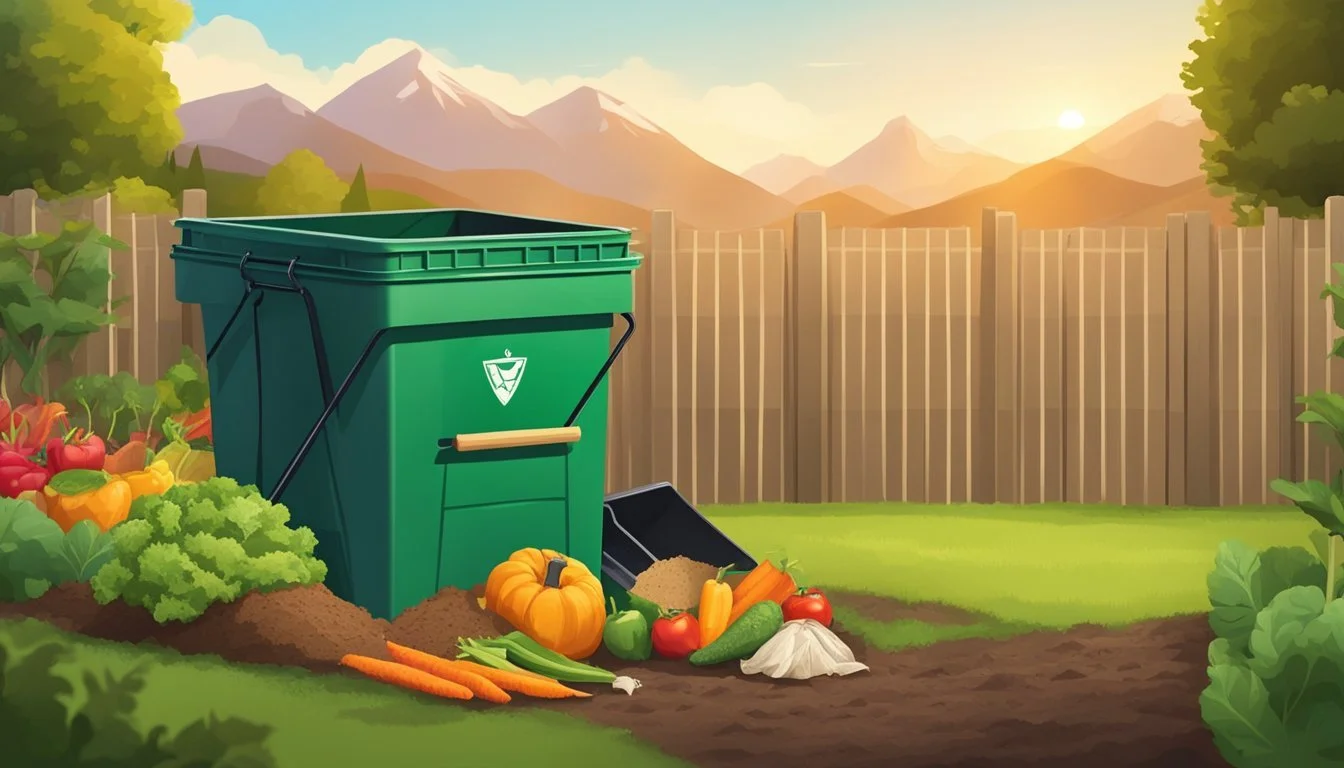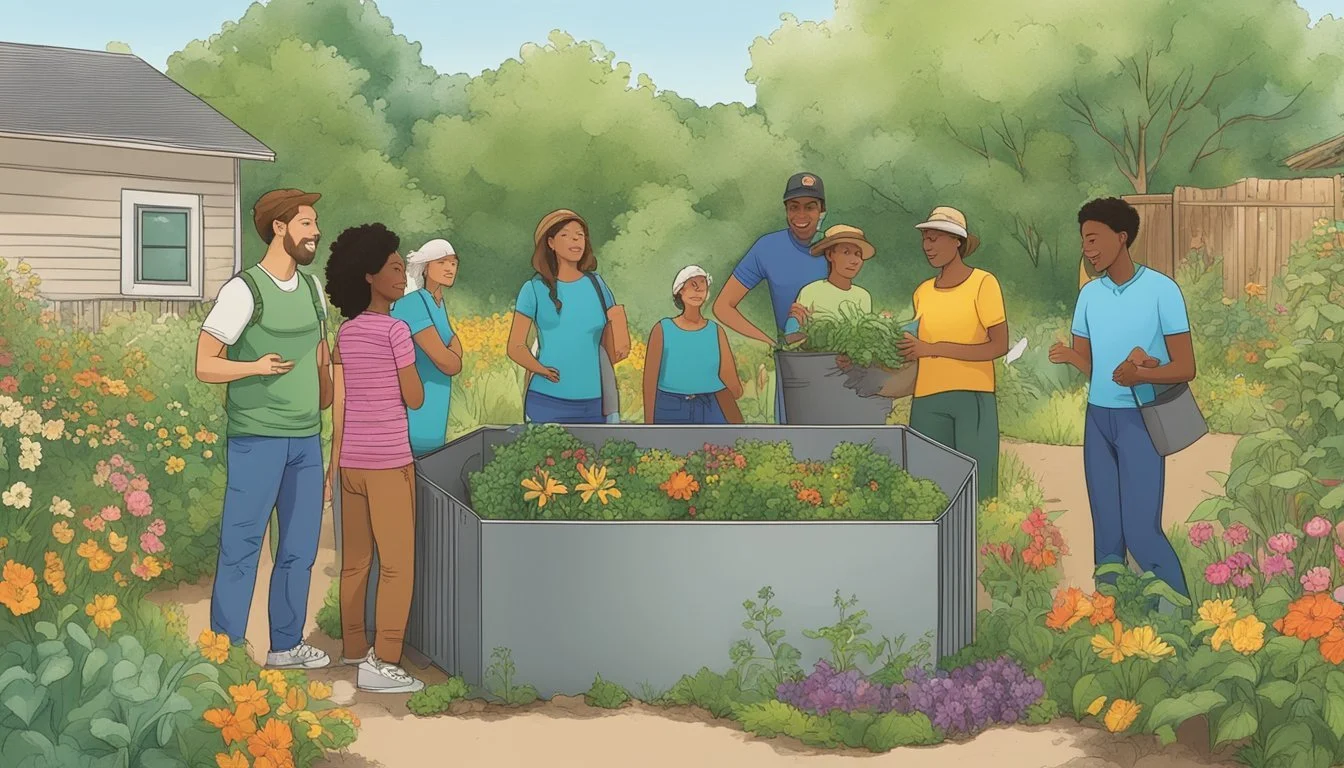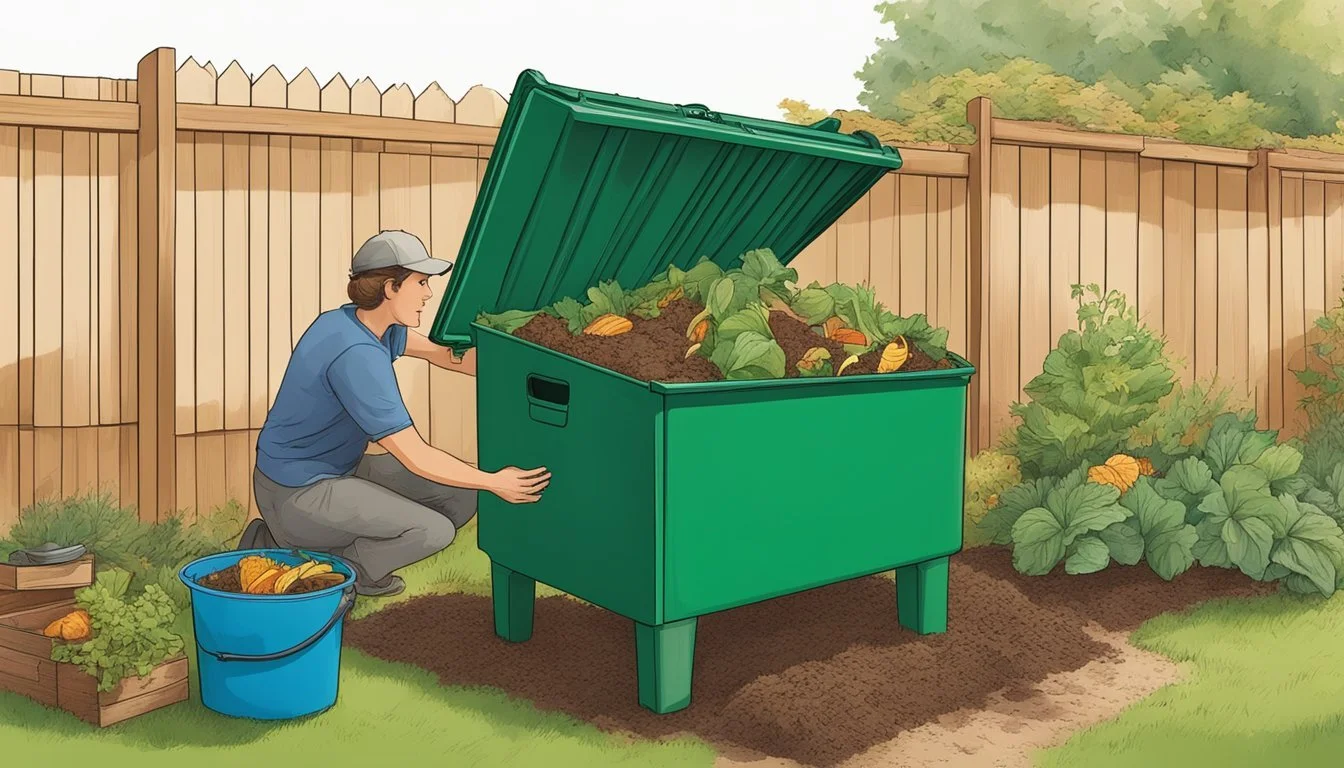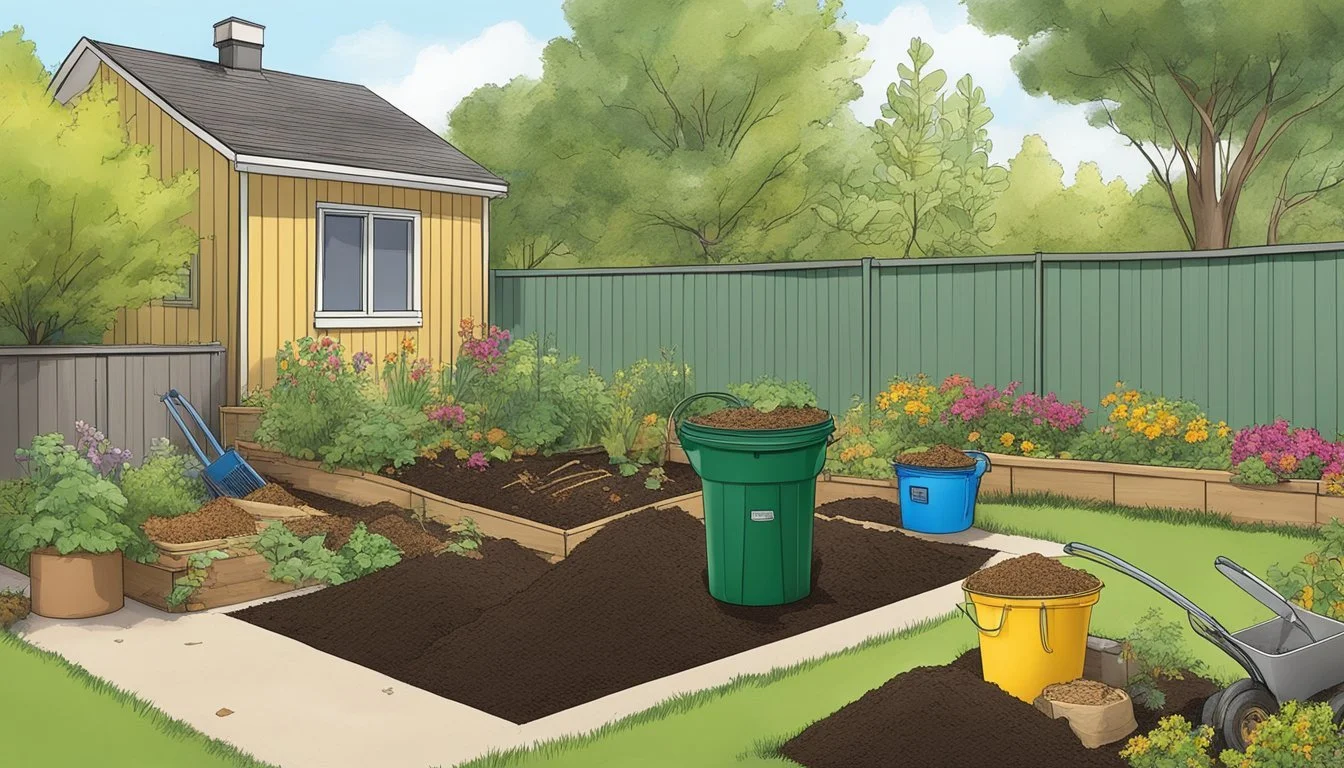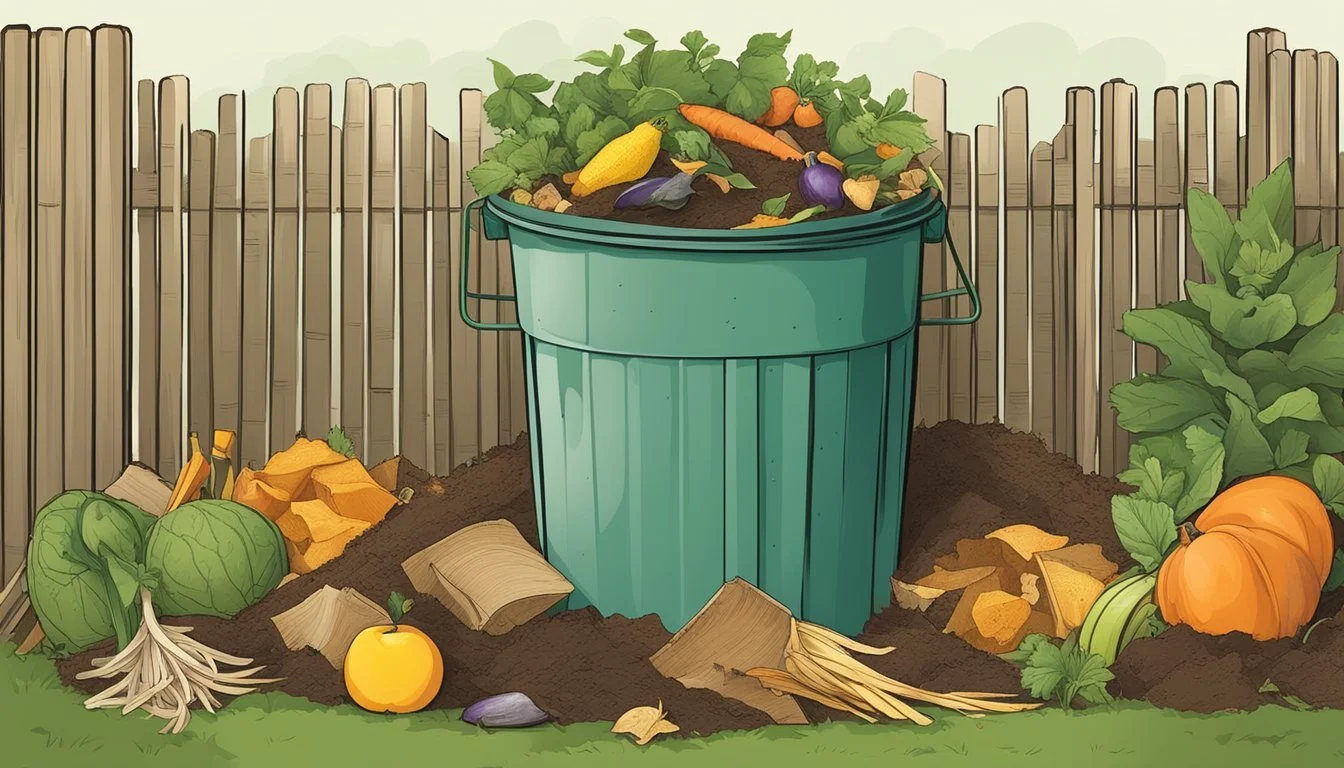Guide to Composting in Boulder, CO
Essential Tips for Successful Soil Enrichment
Composting in Boulder, Colorado, offers residents a practical way to convert kitchen scraps and yard waste into nutrient-rich soil, enhancing the health and viability of gardens while also diverting organic waste from landfills. Through the encouragement of the natural decomposition process, composting is an ecologically sound practice that underlines the city's commitment to sustainability. Boulder provides ample support and guidelines for residents to compost effectively, aiming to create a model for efficient organic waste recycling.
In Boulder, the local government has established clear guidelines that make composting an easier and more efficient practice for its citizens. Recent changes to compost rules now focus on accepting only food scraps, plants, and yard trimmings. This adjustment is part of efforts to reduce contamination and improve the quality of the resulting compost. By following these updated guidelines, Boulder residents contribute to a more robust composting system that benefits everyone.
The compositing initiative in Boulder aligns with the broader goals of waste reduction and soil preservation. Participation in composting helps to conserve natural resources and supports the city's vision of a circular economy where organic waste becomes a valuable input rather than ending up in landfills. This community-driven approach to waste management not only enriches local soil but also positions Boulder as a front-runner in environmental stewardship and recycling efforts.
Benefits of Composting
Composting in Boulder, CO, offers a multitude of environmental benefits. First and foremost, composting contributes significantly to soil health. By adding compost, one enhances the soil structure, which in turn improves its ability to retain nutrients and water. This leads to healthier soils that require less water, benefiting plants and reducing water bills.
Moreover, composting helps to reduce waste going into landfills. Organic materials in landfills decompose anaerobically, releasing methane emissions, a potent greenhouse gas. Through composting, these emissions are significantly minimized as organic waste breaks down aerobically.
Below is a brief list of composting benefits:
Soil Amendment: Compost adds valuable nutrients back to the soil, promoting plant growth and health.
Waste Reduction: Keeps organic materials out of landfills, thus cutting down the volume of waste.
Water Conservation: Compost-amended soil retains moisture more effectively, requiring less irrigation.
Climate Change Mitigation: Absorbs and stores carbon dioxide, reducing the overall carbon footprint.
The practice of composting aligns with Boulder County's commitment to sustainability and environmental stewardship. Residents are encouraged to adopt composting to not only enrich their gardens but also to participate in an effort that curbs greenhouse gas emissions and nurtures healthy soils capable of sequestering carbon dioxide – a critical step in the battle against climate change.
Basic Composting Principles
Composting in Boulder, CO, centers on a balance of carbon-rich materials, known as 'browns', and nitrogen-rich materials, or 'greens'. Browns are typically dry and add bulk, including items such as leaves, straw, and paper. Greens are usually wet and include materials such as food scraps and lawn clippings.
A successful compost pile should have:
A ratio of about 3 parts brown to 1 part green material
Sufficient moisture to keep the pile damp
Adequate oxygen, which is introduced through turning the pile
A sizeable heap to generate enough heat for decomposition
Do's Don'ts Mix in fruit and vegetable scraps Add meat or dairy products Include grass clippings and plant trimmings Use treated wood or coal ash Turn the pile regularly for aeration Let the compost dry out completely
Moisture and oxygen are crucial for the microorganisms that break down the organic matter. The pile should be as damp as a wrung-out sponge and turned at least once a week to provide oxygen and distribute heat more evenly.
Compost provides a wealth of benefits. It enriches the soil, helping retain moisture and suppress plant diseases and pests. It also encourages the production of beneficial bacteria and fungi that break down organic matter to create humus, a rich nutrient-filled material.
Residents of Boulder County can learn more about the basics of backyard composting or access new compost guidelines to ensure they are following current local protocols.
Setting Up a Composting System
Setting up a composting system in Boulder requires choosing an appropriate method, gathering necessary materials, and properly placing and managing your compost bin.
Choosing a Composting Method
When deciding on a composting method, Boulder residents may consider both backyard composting and community composting options. Backyard composting is a personal approach, allowing for close monitoring and control. Alternatively, participating in community programs can alleviate the labor of maintaining a compost system, with organizations like A1 Organics managing compostable waste.
Materials Needed for Composting
To start composting, one needs a balance of greens, such as fruit and vegetable scraps, and browns, like dried leaves and paper. A compost bin or pile should be set up to contain the materials. Home composters can opt for commercially available bins or create their own from materials like wood or repurposed trash bags. It's essential to use only compostable products to reduce contamination in the compost.
Compost Bin Placement and Management
The placement of a compost bin is crucial; it should be situated in a convenient but unobtrusive site with good drainage and partial sunlight. For effective management, the compost should be turned regularly to aerate the pile and speed up the decomposition process. One should monitor the balance of materials, adding more browns or greens as necessary to maintain a proper carbon to nitrogen ratio.
What to Compost
Proper composting in Boulder requires understanding what materials should be included. The goal is to create a balanced mix of green and brown materials that enhances decomposition, while avoiding items that could cause issues with the composting process.
Green Materials
Green materials are rich in nitrogen and necessary for the composting process:
Food Scraps: Most leftovers, including fruits, vegetables, coffee grounds, and eggshells, can be composted.
Grass and Yard Trimmings: Freshly cut grass and green leaves provide excellent nitrogen sources.
Remember to include items such as bones, meat, and dairy products, which are accepted in the Boulder composting program.
Brown Materials
Brown materials provide carbon, which is equally important:
Leaves: Fallen leaves, when dried, are a staple in the brown material category.
Yard Trimmings: Items such as dry twigs and branches contribute to the carbon balance.
Adequate layering of these materials will facilitate the composting process.
Items to Exclude
Certain materials should not be composted because they can attract pests, cause odors, or contain harmful substances:
Oils: Cooking oils and greasy foods can disrupt the composting process and attract unwanted pests.
Inorganic Materials: Non-compostable plastics should be kept out, as they do not break down and can contaminate the soil.
By adhering to these guidelines, Boulder residents can efficiently turn their organic waste into a valuable resource. For more specifics on the latest compost guidelines, refer to the Eco-Cycle Changing Compost Guidelines page.
Composting Best Practices
Boulder County residents can enhance the quality of their compost by adhering to a few best practices. It's essential to maintain a balance between green materials like food scraps and brown materials such as leaves or branches. An optimal ratio ensures proper turning, wherein the compost pile is regularly aerated to speed up decomposition and prevent odor.
Water is another crucial element of effective composting. The pile should be kept damp, but not overly saturated, to support the composting organisms. If a pile is too dry, the decomposition process can stall; if too wet, it can become smelly and attract pests.
When adding materials to your compost, it's important to follow the compost guidelines specific to Boulder County. As of April 1, 2023, only yard waste and food scraps are accepted by the region's compost processor, A1 Organics. This ensures that the end product is clean and free from contaminants.
The composting guidelines for Boulder also recommend:
Chopping up larger items to accelerate breakdown
Avoiding the addition of oils, fats, and dairy to keep pests at bay
Excluding compostable products like utensils and cups as they may not break down effectively
For detailed information on Boulder's composting policies, one can refer to Boulder County Composting and Eco-Cycle’s Composting Guide.
By following these practices, they can produce a nutrient-rich soil amendment beneficial for gardens and landscaping, reinforce local sustainability efforts, and contribute to a healthier environment.
Troubleshooting Common Issues
When composting in Boulder, CO, individuals may encounter a few common issues. Addressing these effectively ensures a successful composting process.
Odors are often a sign of an imbalance in the compost pile. If the compost emits a foul smell, it may be too wet or lack sufficient aeration. To remedy this, one should:
Mix in dry, brown materials such as leaves or straw.
Turn the compost regularly to introduce air.
Pests, such as rodents and insects, are attracted to food scraps. To prevent pests:
Ensure the compost bin has a secure lid.
Do not include meat or dairy products in the compost.
Bury food scraps deep within the pile.
Contamination can occur when non-compostable materials are added to the pile. To avoid this:
Only input organic materials that are known to break down.
Remove any plastics or synthetic chemicals (Composting Guide for Boulder County - Eco-Cycle).
Moisture problems can hinder the composting process. A pile that's too dry won't decompose effectively, whereas one that's too wet may cause odors. To manage moisture:
If too wet, add more brown materials and turn more frequently.
If too dry, add green materials or a little water, and mix.
Refer to the Composting Changes FAQs - Boulder County for more specific guidance on maintaining the ideal balance for your compost in Boulder County. Careful attention to these aspects will help maintain a healthy, efficient composting system.
Using Finished Compost
Finished compost, also known as black gold, is a valuable soil amendment that greatly benefits gardens, trees, and plants. It enriches the soil by improving its structure, fertility, and ability to hold water.
One can utilize finished compost in garden beds by mixing it into the top few inches of soil before planting. This provides a nutrient-rich environment that promotes healthy plant growth. Gardeners often apply a two to three-inch layer of compost to the surface of their soil to nourish plants during the growing season.
Trees and shrubs also thrive with the application of compost around their bases. It should be spread in a ring around the drip line, with care taken to avoid direct contact with the bark to prevent rot.
For houseplants and container gardens, mixing compost with potting soil can give plants an added boost. Generally, a ratio of one part compost to three parts potting soil is recommended.
Here's a simple guide to using compost:
Garden Beds: Mix into the top layer of soil.
Trees/Shrubs: Apply around the drip line.
Houseplants/Containers: Combine with potting soil.
Remember, while compost is beneficial, it should be used thoughtfully. Overuse can lead to excess nutrients, which may harm plant growth. A soil test can provide guidance on the needs of specific plants and gardens.
Community Involvement and Resources
Boulder, CO, has embraced composting with diverse initiatives and educational resources aimed at involving residents and supporting local ecosystems. These programs are instrumental in diverting organic waste from landfills and promoting soil health.
Boulder County Initiatives
Boulder County has established several initiatives to encourage composting within the region. The Boulder County Recycling Center works in tandem with Eco-Cycle to maintain a robust composting program. This includes curbside compost pickup, which is instrumental in making the process convenient for residents. This model not only helps keep organic discards out of landfills but also builds healthy soils and supports local farmers who utilize the compost for agricultural benefits.
Local Compost Workshops and Education Programs
Eco-Cycle spearheads local compost workshops where Boulder County residents can learn how to effectively compost at home. These workshops provide essential education on composting techniques, showcasing how to transform yard waste and food scraps into a valuable soil amendment. Further, they explain the role of compost in carbon sequestration efforts, positioning composting as a local solution to broader environmental challenges.
Volunteering and Community Composting
Community gardens throughout Boulder offer opportunities for residents to get involved with hands-on composting. Volunteer programs allow individuals to contribute to the maintenance of these green spaces, gaining experience in composting and sustainable food production in the process. Eco-Cycle often partners with these community gardens, providing resources and expertise to foster a community-centered approach to composting and waste reduction. Through these collaborations, individuals can experience the full cycle of food production, from growth to composting, while reinforcing the community's commitment to sustainability.
Regulations and Services
In Boulder, Colorado, compliance with composting regulations is essential for residents and businesses alike. An understanding of available local composting services is necessary to effectively manage organic waste within the community.
City Composting Regulations
The City of Boulder mandates that all property owners and businesses separate compostable materials in accordance with the Universal Zero Waste Ordinance (UZWO). This regulation aims to progress toward a zero waste future by requiring proper sorting of compostables, recyclables, and landfill waste. It is imperative that residents familiarize themselves with the new materials list accepted for composting to reduce contamination.
Local Composting Services
Boulder County offers comprehensive compost collection services to ensure organic materials are diverted from landfills. Waste haulers are licensed and operate in collaboration with facilities like A1 Organics, the region's main compost manufacturer. These services make it easier and often more affordable for residents to compost rather than dispose of organic waste. Residents should consult their local hauler's guidelines to ensure proper preparation and collection of their compostable materials.
Beyond Composting
While composting in Boulder is a key factor in waste management, the broader strategies of waste reduction and sustainable materials management play critical roles in achieving a more environmental friendly community.
Reducing Waste at the Source
Initiatives to reduce waste at the source are paramount, as they prevent waste generation altogether. In Boulder, individuals are encouraged to reduce their consumption of single-use items, particularly plastics, which are often not recyclable. Opting for products with minimal packaging, or that come in recyclable materials like glass and metals, helps to diminish waste before it is created. This proactive approach not only lessens the burden on Boulder's waste management systems but also conserves resources and energy.
Reuse is also heavily emphasized, with residents urged to utilize reusable bags, water bottles, and containers. By finding new uses for items that might otherwise be thrown away, the community can significantly limit the amount of waste sent to landfills.
Recycling and Zero Waste Initiatives
Boulder's commitment to recycling and zero waste is evident in its concerted efforts to create a more sustainable city. Recycling programs are in place to process a variety of materials, from paper and cardboard to glass and certain plastics. Boulder residents are informed about which items can be recycled and how to properly sort their waste to ensure that the maximum amount is reclaimed and reprocessed.
The city's zero waste initiatives seek to completely eliminate waste where possible, through a combination of extensive recycling, composting, and waste reduction strategies. Local regulations encourage businesses and residents to prioritize recyclable and compostable options, with the ultimate goal of diverting as much waste from landfills as possible. The combination of these efforts positions Boulder as a leader in sustainable waste management.
FAQs and Additional Resources
Frequently Asked Questions
What items are accepted for composting in Boulder?
Only food scraps and yard waste are currently accepted. Items such as napkins, paper towels, and compostable serviceware are no longer collected. For detailed guidelines, residents can visit Boulder County's composting regulations.Are compostable bags allowed in Boulder's compost program?
The use of compostable bags for bagging compost in Boulder is not encouraged. For alternatives and effective sorting strategies, one can reference the City of Boulder compost guidelines.Can compostable packaging be composted?
"Certified compostable" products and certain paper items are not accepted. Individuals are advised to avoid such packaging in their compost bins.
Additional Resources
For those looking for more comprehensive information on composting in Boulder, below are some valuable resources:
Composting Guide: Learn the steps to successful composting with the Eco-Cycle Composting Guide for Boulder County.
Carbon Farming Initiatives: Discover how Boulder County supports carbon sequestration in soils by checking out Eco-Cycle's carbon farming efforts.
Contact Information: Should there be specific questions or concerns about composting practices, Boulder County provides direct assistance. One may reach out to the appropriate department through their contact page.

